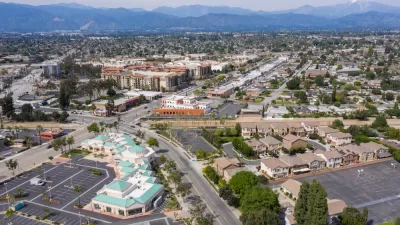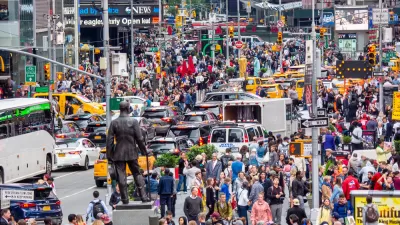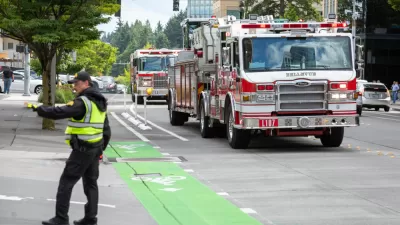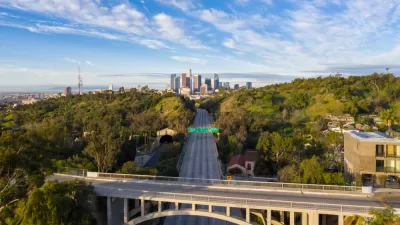Proposed changes to the Los Angeles County Transportation Authority's highway program would allow local governments the flexibility to implement complete street elements with new projects. The proposition has been a surprisingly tough sell.

Joe Linton provides an update of the Los Angeles County Transportation Authority's (Metro) efforts to modernize its highway program to include complete streets features after encountering some resistance from the San Gabriel Valley Council of Governments.
Linton summarizes the changes sought by Metro:
Based on language voters approved in Measures R and M, the Metro Highway Program has been very strict about what features are allowed as part of “highway” projects. Note that while the title of the program is Highway, many projects are located on city streets. The Metro board is interested in allowing “highway” projects, where appropriate, to build complete streets. The proposed new project eligibility rules would allow allow cities the flexibility to incorporate multi-modal components – such as busways, bikeways, and sidewalks – but do not require they be included.
The proposed changes sparked a surprisingly contentious public hearing earlier in November. Harsh, vulgar words were exchanged, as reported by Linton in a previous article. Despite that episode, the San Gabriel Valley Council of Governments eventually decided to support that changes. Some of the officials critical of Metro at the previous hearing reversed stances. Linton provides a lot of detail on the bizarre world of transportation planning politics in the San Gabriel Valley.
In the meantime, the changes "are still being discussed by the various Councils of Governments throughout L.A. County, and are expected to come to a vote at the Metro board early next year," according to Linton.
FULL STORY: San Gabriel Valley Council of Governments Votes to Support Metro Highway Program Flexibility

Alabama: Trump Terminates Settlements for Black Communities Harmed By Raw Sewage
Trump deemed the landmark civil rights agreement “illegal DEI and environmental justice policy.”

Study: Maui’s Plan to Convert Vacation Rentals to Long-Term Housing Could Cause Nearly $1 Billion Economic Loss
The plan would reduce visitor accommodation by 25% resulting in 1,900 jobs lost.

Planetizen Federal Action Tracker
A weekly monitor of how Trump’s orders and actions are impacting planners and planning in America.

Waymo Gets Permission to Map SF’s Market Street
If allowed to operate on the traffic-restricted street, Waymo’s autonomous taxis would have a leg up over ride-hailing competitors — and counter the city’s efforts to grow bike and pedestrian on the thoroughfare.

Parklet Symposium Highlights the Success of Shared Spaces
Parklets got a boost during the Covid-19 pandemic, when the concept was translated to outdoor dining programs that offered restaurants a lifeline during the shutdown.

Federal Homelessness Agency Places Entire Staff on Leave
The U.S. Interagency Council on Homelessness is the only federal agency dedicated to preventing and ending homelessness.
Urban Design for Planners 1: Software Tools
This six-course series explores essential urban design concepts using open source software and equips planners with the tools they need to participate fully in the urban design process.
Planning for Universal Design
Learn the tools for implementing Universal Design in planning regulations.
Caltrans
Smith Gee Studio
Institute for Housing and Urban Development Studies (IHS)
City of Grandview
Harvard GSD Executive Education
Toledo-Lucas County Plan Commissions
Salt Lake City
NYU Wagner Graduate School of Public Service





























